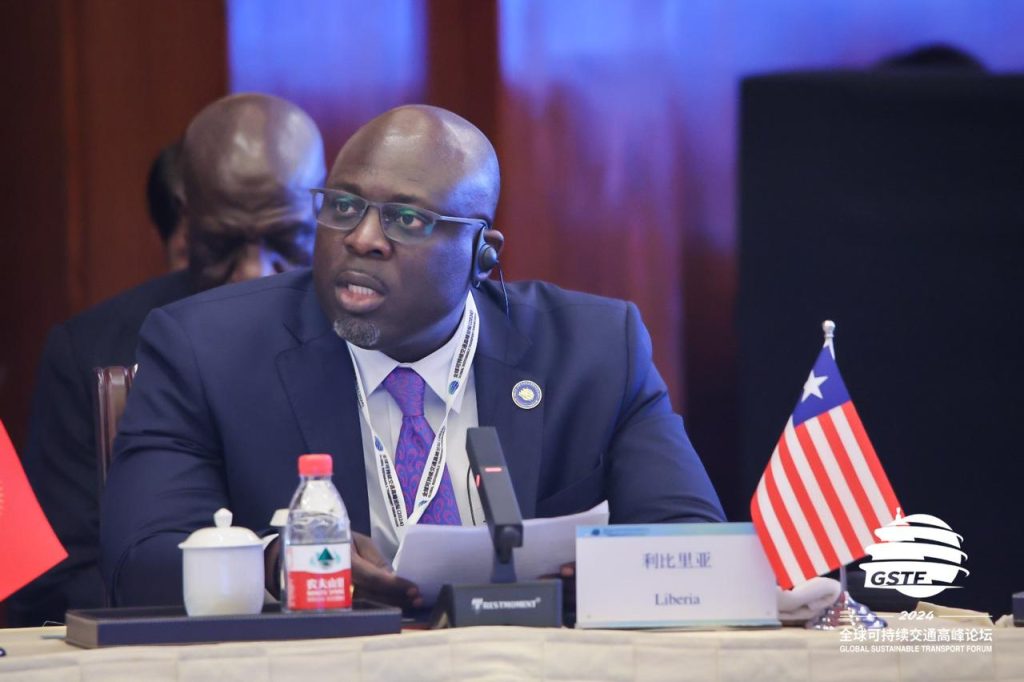The 83rd session of the International Maritime Organization’s Marine Environment Protection Committee (MEPC 83), held in London in April 2025, marked a pivotal moment for the global shipping industry. The session, chaired by Liberia’s Alternate Permanent Representative to the IMO, Dr. Harry Conway, focused on adopting crucial midterm greenhouse gas (GHG) reduction measures. These measures are a cornerstone of the IMO’s 2023 GHG Strategy, which aims to significantly decarbonize international shipping by or near 2050. The anticipated outcome of MEPC 83 was a transformative shift in global shipping operations, particularly concerning the adoption of cleaner fuels and technologies. The session garnered substantial global attention, drawing 1300 physical attendees and thousands of virtual participants, underscoring the importance of the deliberations.
Liberia’s leadership role in this critical session, particularly with Dr. Conway presiding, held significant national pride and international implications for the country. Chairing the MEPC, the committee responsible for addressing the pressing issue of decarbonization in shipping, not only elevated Liberia’s international standing but also strengthened its position within the IMO. This leadership role was perceived as bolstering Liberia’s bid for re-election to Category A of the IMO Council and potentially supporting its aspiration for a non-permanent seat on the United Nations Security Council. The Liberian delegation, led by Ambassador Robert W. Kpadeh, aimed to ensure that the adopted measures were both just and equitable, leaving no nation behind, particularly least developed countries and small island developing states.
The Liberian delegation advocated for a cooperative and collaborative approach among member states, building upon their efforts during the 19th Intersessional Working Group on GHG. Their aim was to achieve consensus on measures that considered the specific needs of all nations, especially those most vulnerable to climate change. Recognizing the historical significance of a Liberian chairing such a crucial session, the delegation viewed it as a testament to Liberia’s commitment to global maritime issues and its proactive role in shaping the future of the shipping industry. Ambassador Kpadeh emphasized Liberia’s consistent demonstration of strong leadership within the IMO, not only through its chairmanship of the MEPC but also as a major ship registry with a program compliant with international regulations.
Liberia’s significant role in international shipping, as the largest ship registry, further amplified its influence within the IMO. Ambassador Kpadeh highlighted Liberia’s active involvement in various IMO working groups, contributing to discussions and advocating for measures that enhance global security. He emphasized the country’s commitment to maintaining a transparent and compliant fleet, devoid of any “dark” vessels engaging in illicit activities. This dedication to international regulations and security, coupled with its leadership within the IMO, was presented as a strong argument for Liberia’s continued representation within the IMO Council and its potential role in the UN Security Council.
The Liberian Permanent Mission to the IMO urged the Liberian government to closely follow the MEPC 83 discussions, emphasizing the substantial immediate and long-term benefits for the nation. These benefits included bolstering Liberia’s international image, securing re-election to the IMO Council, and potentially gaining a non-permanent seat on the UN Security Council. The mission underscored Liberia’s crucial role in global trade, controlling 15% of global shipping tonnage, which solidified its position as a key player in maintaining peace and security in the maritime domain. The control over such a significant portion of global shipping, responsible for transporting essential goods worldwide, positioned Liberia as a vital contributor to international stability.
Looking ahead, the Liberian mission emphasized the long-term economic opportunities arising from decarbonization measures. These included potential revenue streams for developing port infrastructure to accommodate greener vessels, training seafarers on new technologies associated with these vessels, and developing renewable energy sources to power ports and other essential facilities. The mission highlighted the potential for public-private partnerships and investment opportunities stemming from the green shipping revolution initiated by the midterm GHG reduction measures. The Liberian delegation committed to keeping the nation informed about the outcomes of MEPC 83 and its ongoing efforts to ensure that the adopted measures were just, equitable, and inclusive for all nations. This commitment reflects Liberia’s dedication to representing its national interests while contributing to the global effort to decarbonize the shipping industry and mitigate climate change.


